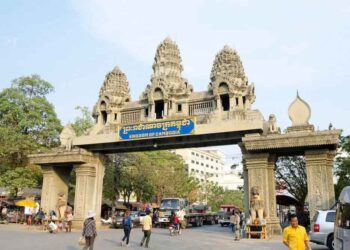Sri Lanka’s Gambling Regulatory Authority Bill has been passed by the nation’s parliament with amendments, local media has reported.
The Bill, which was gazetted in May under the directives of President Anura Kumara Dissanayake in his capacity as the Minister of Finance, Planning and Economic Development, establishes a formal gambling regulator – the Gambling Regulatory Authority (GRA) – tasked with the collection of gambling-related revenue, ensuring transparency and good governance in gambling operations, and preventing illegal gambling activities. More broadly it aims to standardize betting and gaming establishments in Sri Lanka, minimize social harm, develop the tourism sector and grow the economy.
The draft bill was passed after a second reading this week and will upon endorsement by the Speaker of Parliament come into effect as the Gambling Regulatory Authority Act.
The Act repeals the previous Horse Racing Betting Ordinance, the Gambling Ordinance, and the Casino Ordinance.
While the establishment of a formal regulatory body is seen as a positive step forward for the industry in Sri Lanka – which earlier this month celebrated the launch of its first integrated casino resort City of Dreams Sri Lanka – some have questioned the GRA’s independence and integrity.
A policy think tank recently warned that while establishing a regulator was vital to the industry’s long-term future, the planned Gambling Regulatory Authority appears to lack the independence needed to provide proper oversight.
“If you look at the theory of regulation, it is very clear that the regulator has to be an independent body which gives credibility,” said research consultant Sudaraka Ariyaratne. “That is not the case with this Gambling Authority Bill.
“The danger with this bill is that it won’t even give a perception of integrity, if the Minister of Finance can basically do whatever he or she wants.”
Local media outlet The Sunday Times also compared the GRA Act with Singapore’s gaming regulations, stating, “[The bill’s] primary shortcomings lie in its weak provisions for regulatory independence, its vague suitability criteria for operators, its profound lack of robust and specific harm-minimization tools like a comprehensive exclusion system, and its technologically outdated enforcement powers against online gambling.
“The Bill appears philosophically weighted towards economic promotion and revenue collection, whereas Singapore’s laws, while facilitating a viable industry, are built on bedrock of stringent control and social protection.”




































